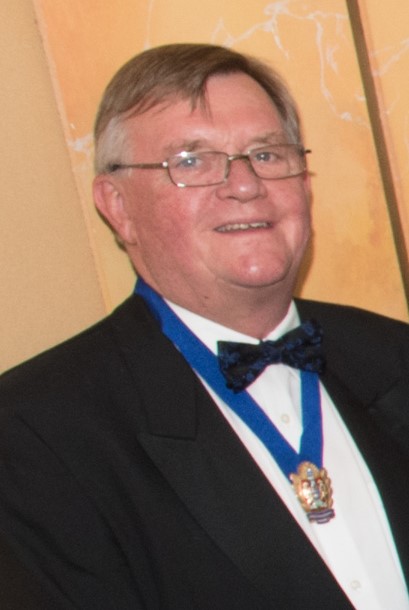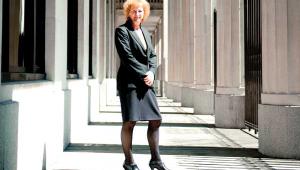 Mike’s presidential year came at a particularly challenging and exciting time. The public sector generally was experiencing fundamental change as the Major government sought to press on with a more commercial, market orientated approach to the provision of public services.
Mike’s presidential year came at a particularly challenging and exciting time. The public sector generally was experiencing fundamental change as the Major government sought to press on with a more commercial, market orientated approach to the provision of public services.
The latest attempt to merge the accountancy profession had just failed and competition between the accountancy bodies was intensifying. Moreover, the Institute was experiencing financial pressure and was running at a deficit.
Treasury management in Local Government was subject to scrutiny and criticism following the swaps ‘scandal’, the failure of BCCI and the Hammersmith and Fulham case. And there was a recession generally. All of this presented the Institute and its members with major challenges and the need for change.
A great deal of Mike’s presidential year was spent with colleagues, reviewing CIPFA’s policies and then travelling around the country promoting and consulting upon a new strategy for the Institute, all of which was driven by the factors outlined above in addition to the fact that activity in the Institute had expanded considerably as the new student numbers had grown throughout the 1980s.
The culmination of this was the wide circulation of a consultation document – A Strategy for CIPFA in Jan 1992 and a final submission to the 1992 AGM.
Although CIPFA has had some excellent presidents, Mike was one who was outstanding. He was thoughtful and his advice was well grounded. He was an excellent person to work with, very thoughtful, kind and helpful. He was able to draw from a wide range of experiences and was an invaluable colleague.
Mike’s formative early career was in local government starting at Macclesfield Borough Council in 1960, then Salop County Council, the Birkenhead County Borough Council and finally Stockport Metropolitan Borough Council where he was senior assistant director of finance. He moved to the health service, as regional treasurer of the Mersey Regional Health Authority in 1978. By personal invitation of the permanent secretary, he had a part-time secondment to the DHSS at under secretary level.
Mike had 16 years in top management positions in the NHS, culminating in director of finance, NHS Scotland. He then moved to the education sector where he was appointed as the CX of the Funding Agency for Schools for five years before taking on the role of CX of One NorthEast, the Regional Development Agency for the North East of England.
This snapshot of his career demonstrates how well he was thought of at the highest level.
Mike retired from full time work in May 2003 having completed 44 years in public service. His public sector ethic did not stop there and he held various non-executive positions – far too numerous to mention. Over 50 years, Mike made an enormous contribution to both the Institute and many parts of the public sector. In 1999, he was awarded the CBE for services to education.
Mike was a thoughtful, modest, courteous and loyal man. Indeed, he was a model example of the seven Nolan principles of public life. His views were always worth listening to and were always expressed in sensible and measured terms.
Mike was passionate about the Institute and latterly, given his vast experience, provided scrutiny of the Institute on many key issues, particularly governance. During the past year or so, both he and I were engaged in discussions with the immediate past president and colleagues at PSAA over the delays in the audit of local authority accounts.
In my final conversation with him a few days before his death, Mike’s interest in CIPFA remained steadfast and he asked me how the Institute was.
The passing of Mike means that CIPFA has lost a great servant. He died on 15th August after a long illness, aged 81. Sadly, Mike’s widow, Cynthia, died a few weeks after his passing on the 11th September. Mike leaves two children and several grandchildren. His outside interests were golf, bridge, fell walking, opera, travel and Manchester City FC.










